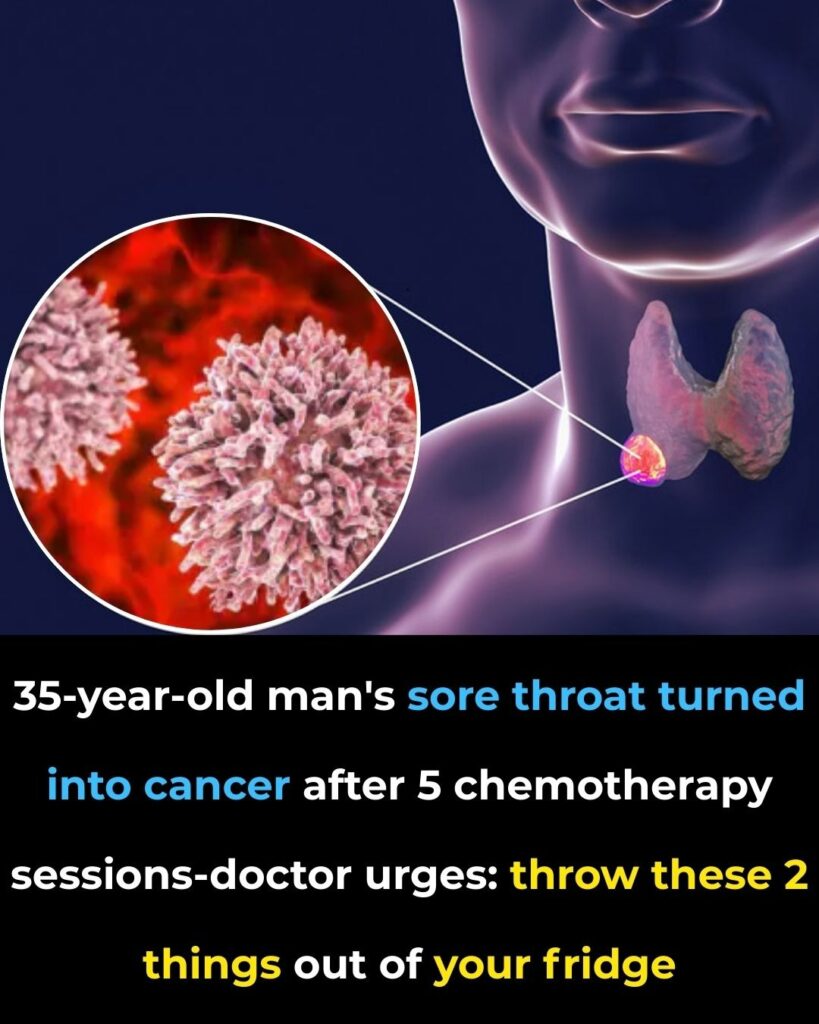
A sore throat is one of the most common reasons people visit a doctor — especially during cold and flu season.
But what if your sore throat just… doesn’t go away?
For most, it’s a viral infection, allergies, or acid reflux.
But in rare cases, a persistent sore throat can be a warning sign of something more serious — including oropharyngeal cancer, a type of head and neck cancer that’s been rising in younger adults.
Let’s explore what could be behind a long-lasting sore throat — so you can recognize red flags and act wisely.
Because real health isn’t about fear.
It’s about knowing when to pay attention — and when to seek answers.Buy vitamins and supplements
What Causes a Sore Throat?
Most sore throats are harmless and short-lived:
✅ Viral infections (common cold, flu, mono)
✅ Bacterial infections (strep throat)
✅ Allergies or dry air
✅ Acid reflux (GERD)
✅ Overuse of voice
These usually resolve within 7–10 days.
⚠️ When a Sore Throat Might Be Something More Serious
If any of these symptoms last more than 2–3 weeks, see a healthcare provider:
✅ Persistent sore throat
Could indicate chronic infection or tumor growth
✅ Lump in the neck
Swollen lymph node from infection — or cancer
✅ Difficulty swallowing
Pain or sensation of blockage
✅ Hoarseness lasting >2 weeks
Vocal cord involvement
✅ Unexplained weight loss
Systemic illness, including cancer
✅ Ear pain (one-sided)
Referred pain from throat tumors
Early detection improves outcomes dramatically.
The Hidden Link: HPV and Throat Cancer
One major cause of rising throat cancer in younger adults is human papillomavirus (HPV) — specifically HPV-16.
✅ HPV-related oropharyngeal cancer is increasing — especially in men under 50
✅ Often starts without symptoms until advanced stages
✅ Not linked to smoking (unlike traditional head/neck cancers)
✅ Preventable with the
HPV vaccine
(recommended for ages 9–26, and up to 45 after discussion with a doctor)
Many people don’t know they have HPV — it’s often asymptomatic and clears on its own. But in some, it persists and leads to cell changes over years.
Debunking the Myths
❌ “Only smokers get throat cancer”
False — non-smokers are increasingly affected due to HPV
❌ “Eating moldy bread causes cancer overnight”
No — occasional exposure isn’t dangerous; long-term mold exposure may pose risks but is rare
❌ “Something in your fridge gives you cancer”
Misleading — spoiled food can cause illness, but not sudden cancer
❌ “Chemotherapy causes cancer to spread”
Dangerous myth — chemo treats cancer; side effects exist, but it doesn’t worsen the disease
✅ Real Risk Factors for Throat Cancer
✅
HPV infection
#1 cause of oropharyngeal cancer in younger adults
✅
Smoking & tobacco use
Damages cells and increases risk
✅
Heavy alcohol use
Combined with smoking, greatly increases risk
✅
Poor oral hygiene
Chronic inflammation may contribute
✅
Weakened immune system
Less ability to clear HPV or fight abnormal cells
Vaccination, regular check-ups, and healthy habits reduce risk.Buy vitamins and supplements
How Doctors Diagnose Persistent Throat Issues
If symptoms persist, your doctor may:
Perform a physical exam (including neck and throat)
Use a scope to view the back of the throat (laryngoscopy)
Order imaging (CT, MRI)
Take a biopsy if a suspicious area is found
Early diagnosis = better treatment options.
Final Thoughts
You don’t need to panic every time you have a sore throat.
But if it lasts more than a few weeks — especially with other symptoms like a lump, hoarseness, or trouble swallowing —
don’t ignore it.
Talk to your doctor.
Get checked.
Ask about HPV vaccination if you’re eligible.
Because real strength isn’t about pretending everything’s fine.
It’s about protecting your health — early, honestly, and without shame.
And that kind of courage?
It starts with one simple question:
“Should I get this looked at?”
Say yes.